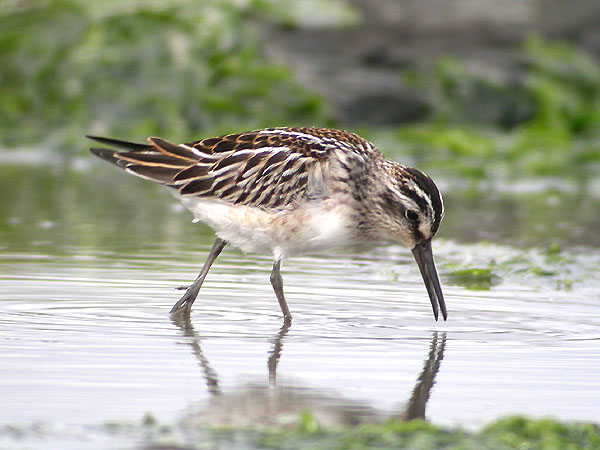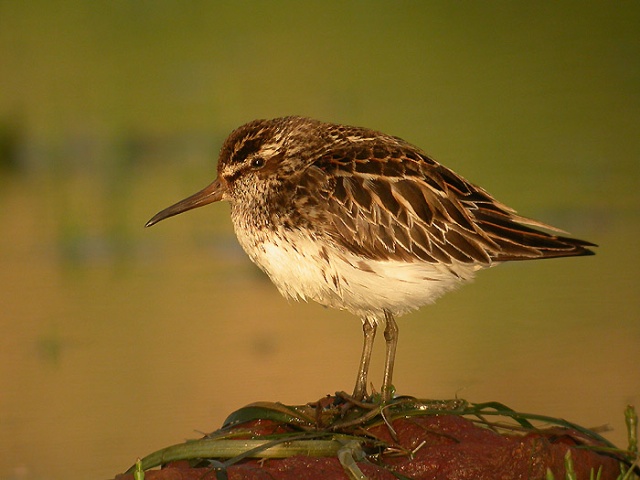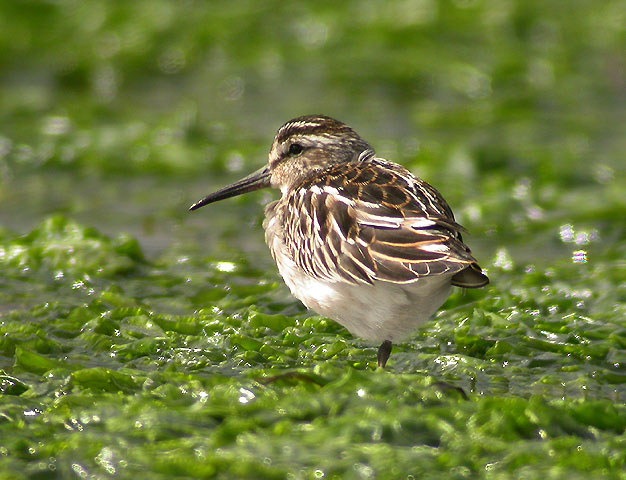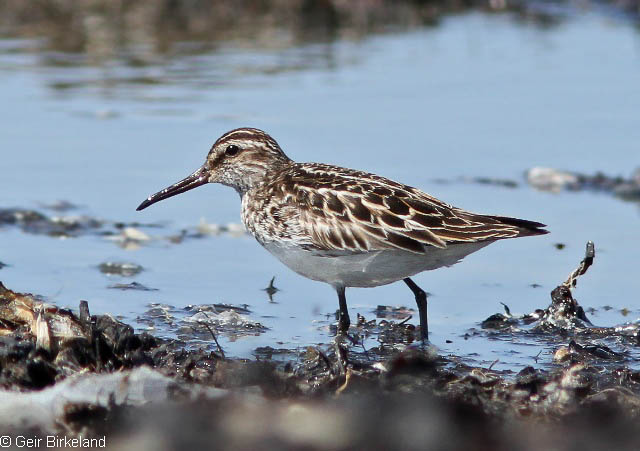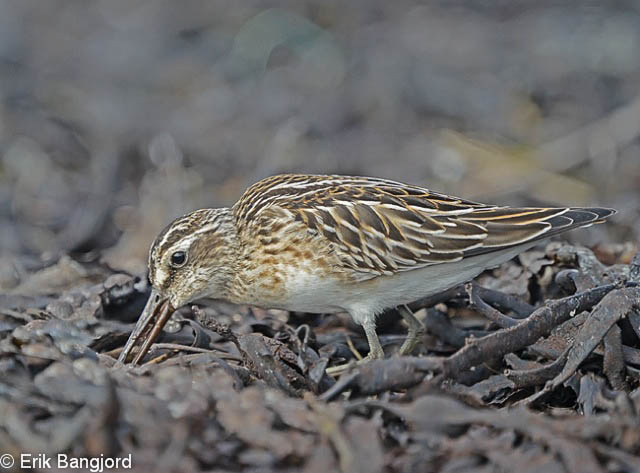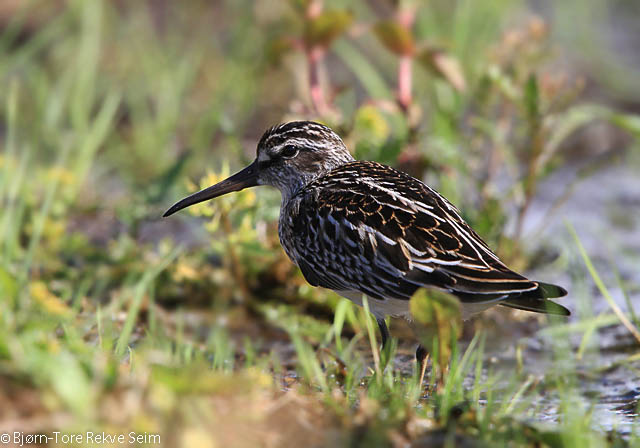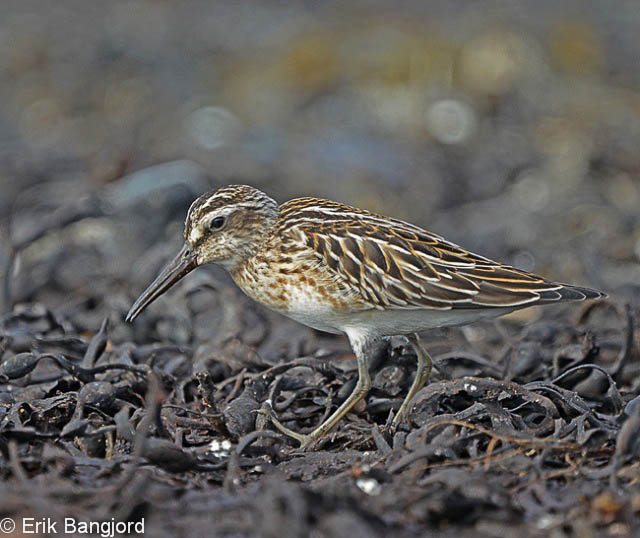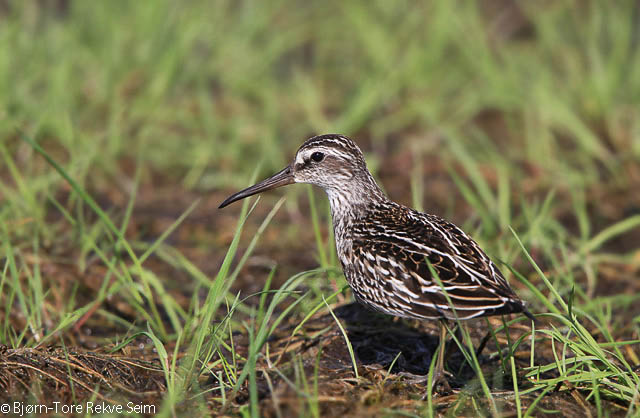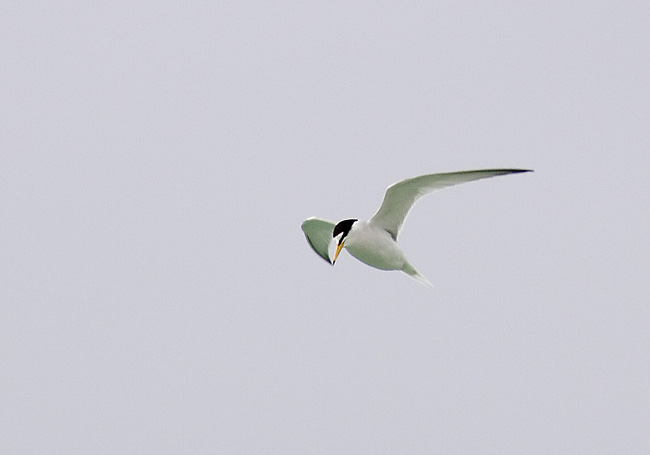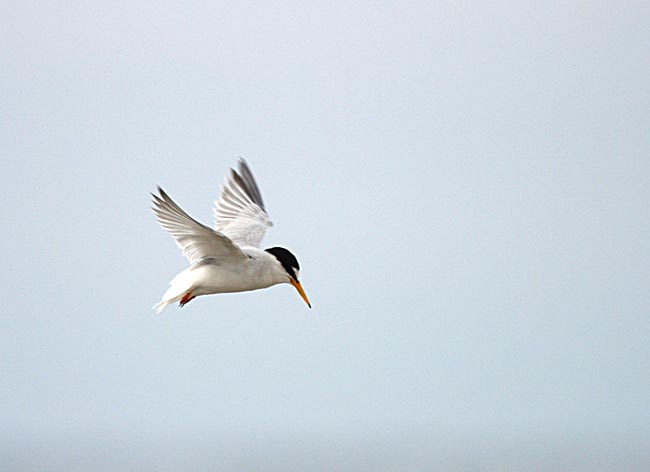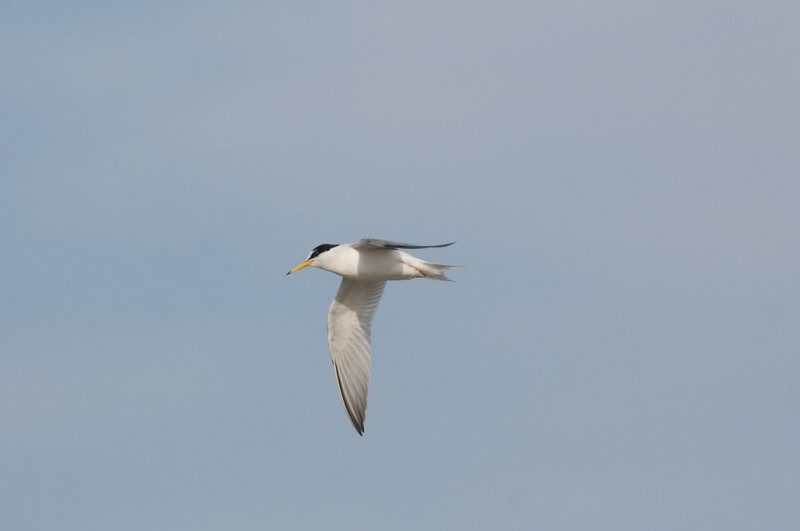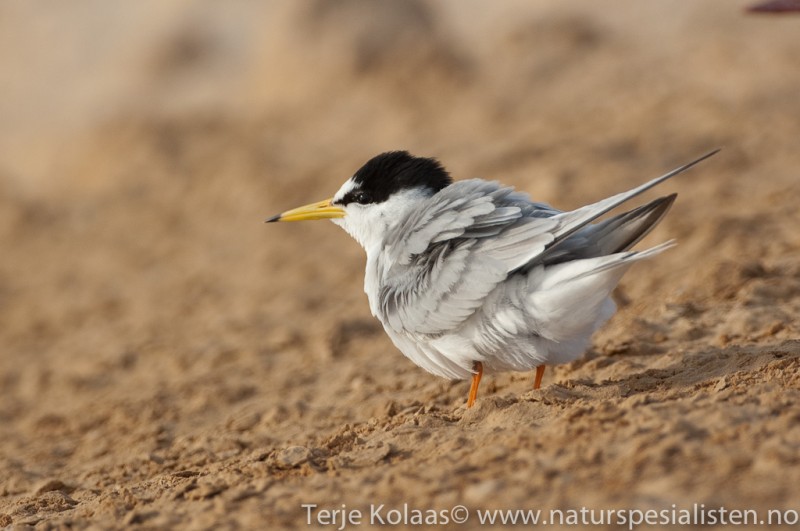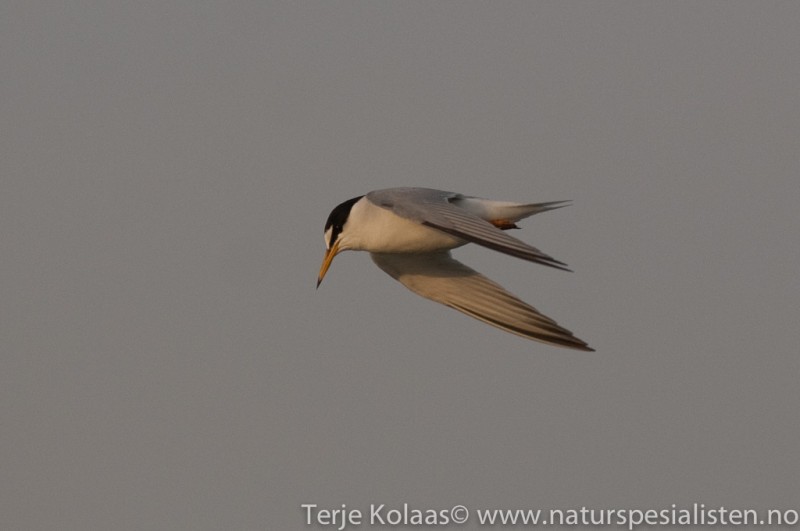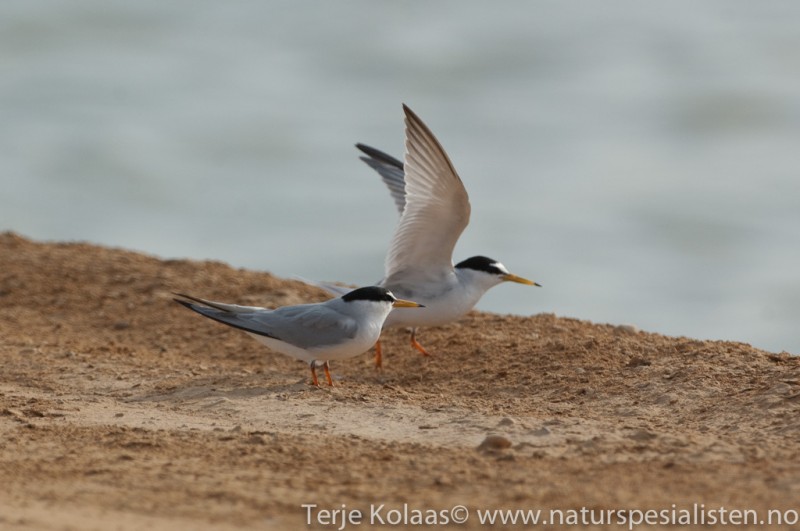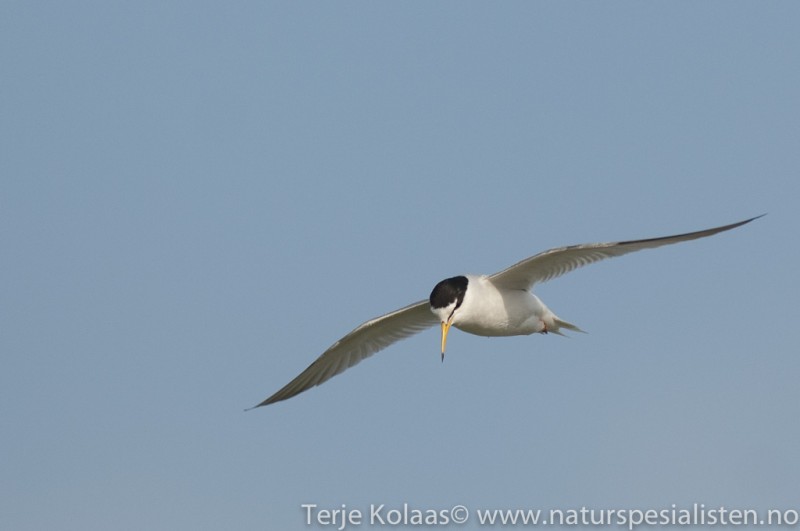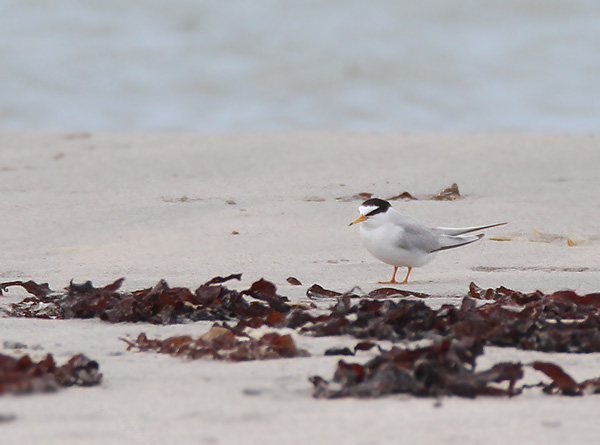Broad-billed Sandpiper (Calidris falcinellus)
Little Tern (Sternula albifrons)
Can be mistaken for a Dunlin but differs in characteristic double supercilium, unmarked belly and shorter legs. Bill is thicker, almost swollen at base, and more distinctly bent at tip. Overall impression much more contrasty than Dunlin. Winter plumage with dark centres of tertials, and finely striped crown. Juveniles with white V-shaped markings on back, similar to Little Stint. Wing bars and tail markings resembles Dunlin in flight. Moves relatively slow when feeding.
Sound:Distinct contact call. A trilling "drrroiiit" with a peculiar timbre, ending with a rapid rise of pitch. Song often preceded by the contact call, which then fuses into a continuous vibrating trill.
Song:
Distribution:
Xeno-canto: map
Ecology:Birdlife ecology
Links:
Observation.org Latest observations
Image search Flickr NB! May give other species
CCWhite forehead with white wedge above eye in all plumages. Legs, and most of bill yellow in adult breeding plumage. Very small and longwinged tern. Only 2/3 of size of Common Tern. Head and bill proportionally longer than Chlidonias species and congeners, while tail is shorter. Back paler grey and belly whiter. First primaries form a dark front edge to wing. In winter the bill darkens, legs turn a dirty yellow and the white forehead expands. Juvenile resembles adult winter, but has yellowish bill base and scale patterned back. Flight fluttering with rapid wing-beats, which together with size, is usually sufficient to determine the species.
Sound:Fairly distinct voice. Contact call a sharp "kitt", often combined to form undulating, rolling series. Not as sharp and penetrating as Common- and Arctic Tern.
Contact call:
Distribution:
Xeno-canto: map
Ecology:Birdlife ecology
Links:
Observation.org Latest observations
Image search Flickr NB! May give other species
CC
 English
English Albanian
Albanian
 Armenian
Armenian
 Bulgarian
Bulgarian
 Catalan
Catalan
 Croatian
Croatian
 Czech
Czech
 Danish
Danish
 Dutch
Dutch
 Finnish
Finnish
 French
French
 Georgian
Georgian
 German
German
 Greek
Greek
 Hungarian
Hungarian
 Italian
Italian
 Latvian
Latvian
 Lithuanian
Lithuanian
 Macedonian
Macedonian
 Norwegian
Norwegian
 Polish
Polish
 Portuguese
Portuguese
 Romanian
Romanian
 Russian
Russian
 Sami : Lule sami
Sami : Lule sami
 Sami : North sami
Sami : North sami
 Sami : South sami
Sami : South sami
 Scientific names
Scientific names
 Serbian
Serbian
 Spanish
Spanish
 Swedish
Swedish
 Ukrainian
Ukrainian


